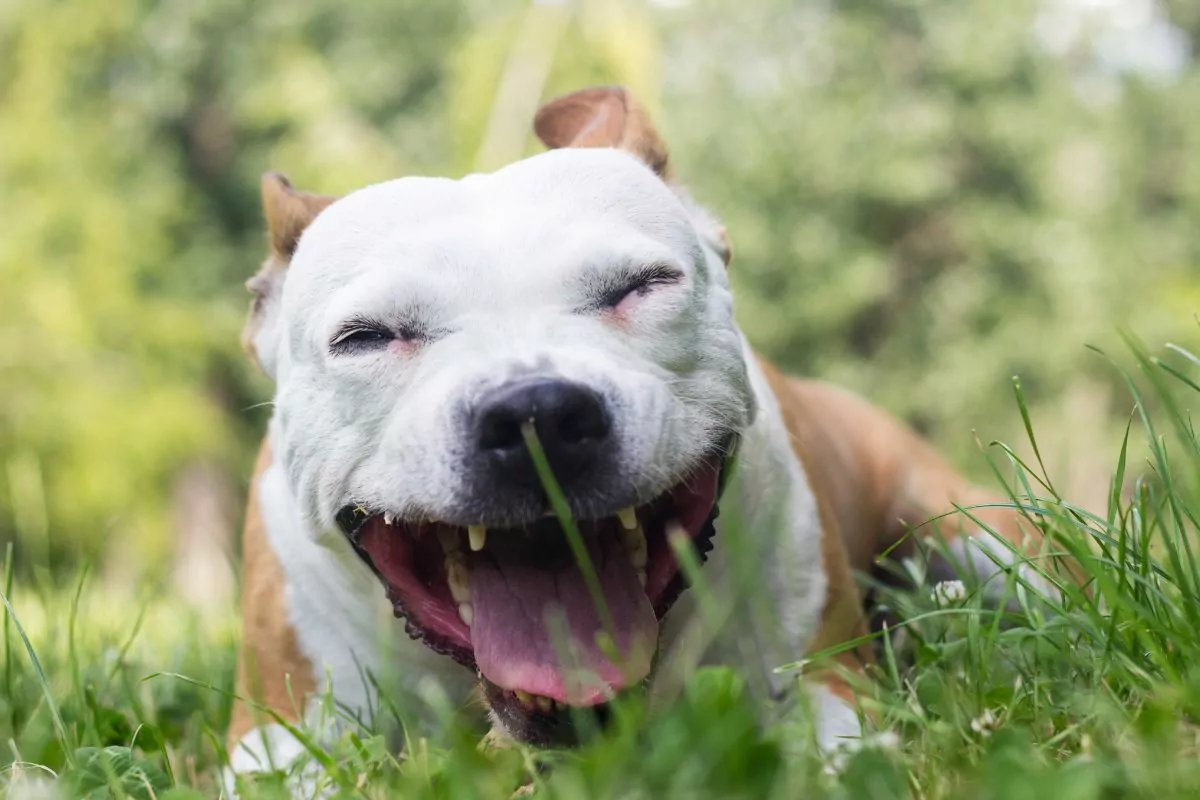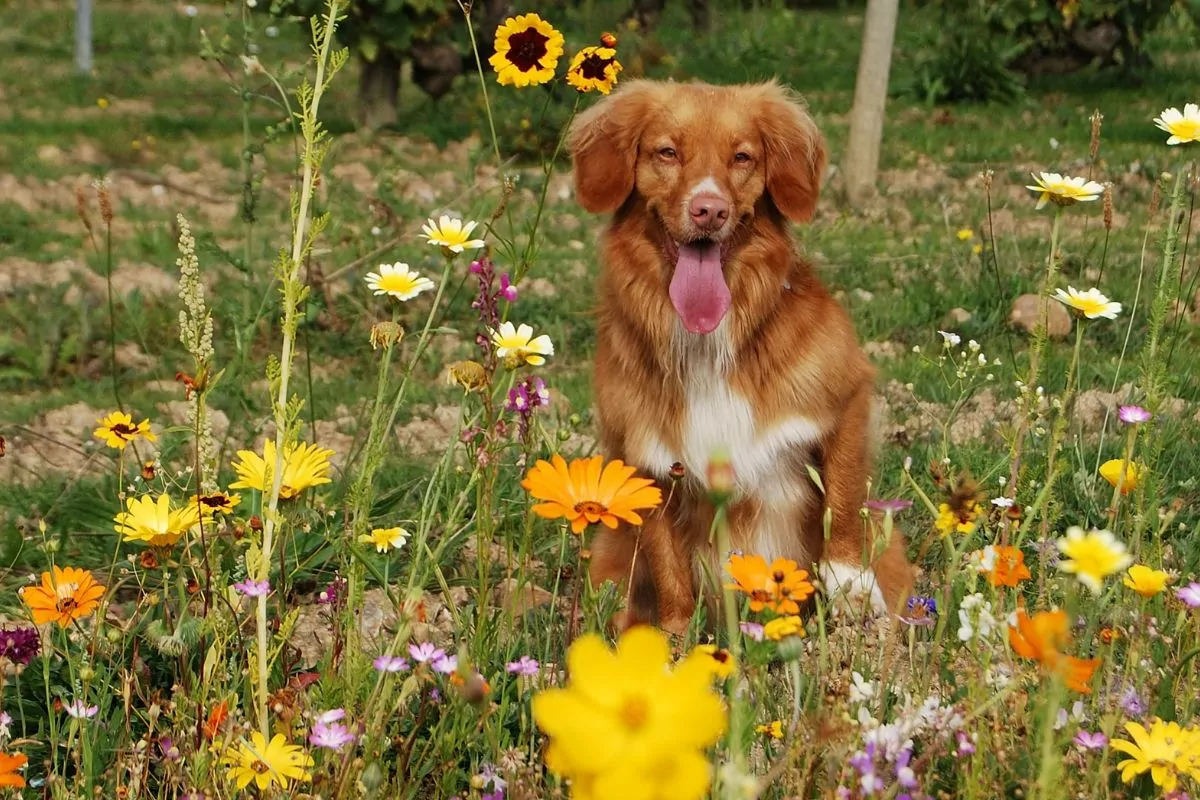Bronchitis in dogs is rare, but it is not too far-fetched a disease associated with our canines. Have you ever heard your dog cough but were unsure if you should be concerned or just encourage it to drink water? Just like humans, dogs are susceptible to respiratory issues, and canine bronchitis is one of them.
In this article, we will provide you with knowledge on dog bronchitis, its causes, signs, when to seek veterinary care, treatment, remedies, and how to support your dog’s recovery.
Your canine companion’s health and peace of mind are essential to us, so take a read.

What is Bronchitis?
When the bronchi are inflamed, a condition known as bronchitis results. The bronchi are the two branches of the trachea (windpipe) that further branch into the lungs. The inflammation leads to mucus production and uncomfortability. It is characterized by coughing, wheezing, and difficulty breathing and can sometimes be confused with other respiratory diseases.
Bronchitis affects middle-aged and senior dogs; it can affect dogs of all sizes, sexes, breeds, and ages. However, airway patterns are usually hereditary; hence, the likelihood of developing bronchitis has an inborn mechanism, but not in all cases.
Don’t get confused; canine infectious tracheobronchitis is an inflammation that involves both the trachea and the bronchi, whereas bronchitis only affects the bronchi, even though the signs may look similar.
Is Bronchitis Contagious in Dogs?
One may ask, “Is bronchitis contagious in dogs?”. While the word “bronchitis” may initially sound alarming, its contagiousness depends on the type and cause of bronchitis.
Bronchitis, caused by infectious organisms such as viruses, bacteria, and parasites, is contagious and can spread from dog to dog through contact with or inhalation of cough droplets or surfaces contaminated by infected droplets. Chronic bronchitis is not as infectious as non-infectious organisms cause it.
Symptoms of Bronchitis in Dogs
The signs and symptoms of bronchitis in dogs are similar to those of most respiratory diseases. However, the most common signs of bronchitis include:
- Dyspnea (trouble breathing)
- Restlessness
- Dry and harsh cough that lasts for a long time
- Production of saliva that is foamy
- Overflowing mucus production
- Fever
- Loss of appetite
- Runny nose and eyes
- Wheezing
- Loss of consciousness
How Do Dogs Get Bronchitis?
Bronchitis in dogs has a wide variety of causes. Infections such as bacterial, viral, parasitic, and fungal play an important role. Other implicating factors include allergic reactions and irritation of the airways. A sudden change in weather, tracheal conformation changes, and environmental stressors can affect your dog’s chances of getting bronchitis.
What Does Bronchitis in Dogs Sound Like?
Bronchitis in dogs sounds like a goose cry or honk. This is because the bronchitis cough in dogs comes as a spasm, which looks like an involuntary attack and will become more frequent with time. This cough can sometimes be confused with the dog’s gagging or vomiting attempt.
The coughing sound is more prominent when your dog rises after a rest or is in an excitatory mode. It also usually occurs during the night.
The Different Kinds of Canine Bronchitis
There are two main types of canine bronchitis.
- Acute Bronchitis in Dogs
This condition occurs frequently. It appears all of a sudden and usually doesn’t last long. It is usually easily treated and is not permanent.
It is caused mainly by viruses and bacterial infections caused by Bordetella bronchiseptica, Canine adenovirus, Streptococcus zooepidemicus, Canine distemper virus, Parainfluenza virus, and Canine herpes virus, allergies, diseases that affect the oral cavity, the pharynx, and the lungs, and parasitic infections. Shelters, boarding kennels, and dog parks are common sources of infection.
- Chronic Bronchitis in Dogs
Canine chronic bronchitis is persistent and has lasted more than a year. Most of the time, its cause is not identified and requires daily or constant medical care. It causes permanent, non-reversible damage to the airways. Chronic bronchitis cannot spread from one dog to another since infections do not cause it. Your veterinarian must rule out many diseases to make this diagnosis.

How Do Vets Diagnose Bronchitis in Canines?
Diagnosing bronchitis in dogs occurs by considering many factors, such as history, physical exams, signs your dog is showing, laboratory tests, and imaging.
Your vet would find out how long the disease has been present and if there has been any travel history. The vet will also examine the dog physically to assess its health. Laboratory tests will help rule out or diagnose diseases.
Your vet will also perform various imaging tests such as x-rays to get a picture of the chest and lungs, swaps from the bronchi, and bronchoalveolar lavage, where there is a washing of bronchi and culturing of the mucus and cells from the wash to determine the definite diagnosis; and bronchoscopy, where the airways of your pet are checked for any abnormalities using a piece of equipment with a camera.
How to Treat Bronchitis in Dogs
Since acute bronchitis is easily reversible, it is much easier to treat. Treatment includes antimicrobials, anti-inflammatory drugs, corticosteroids, and cough suppressants.
For chronic bronchitis, treatment is more tailored to relieving symptoms and making your dog more comfortable. They include corticosteroids, drugs that aid in airway opening (bronchodilators for dogs), and reducing your dog’s contact with dust, smoke, and strong sprays.
Your vet will also prescribe a device used to deliver drugs like a mist into your dog’s airways (a nebulizer), advise that your dog lose weight if it is slightly obese, and might perform a procedure where cupped hands strike the chest to release mucus and open the airway, known as coupage (please don’t try this at home as you might cause more harm than good).
Also, no matter the type of bronchitis, nothing beats a good rest, adequate water, and quality food. Ensure your dog is well fed, hydrated, and gets lots of rest to allow the body to recover.
Can Dogs Cause Bronchitis in Humans?
Dogs cannot cause bronchitis in humans, and humans can not cause bronchitis in dogs either. Canine bronchitis is not zoonotic (i.e., transmitted from dogs to humans). Hence, your safety is assured when your dog is diagnosed with bronchitis.
If you have any allergies to pet dander, have a weak immune system, or are immunocompromised, please stay away, as this can be an implicating factor in falling sick one day.
However, remember to adhere to personal hygiene rules, such as washing your hands after attending to your sick dog, to prevent possible disease spillover from the microorganisms responsible for your dog’s illness.
How Long Does Bronchitis Last in Dogs?
The duration of your pet’s bronchitis depends on the type of bronchitis it has. Acute bronchitis with medication typically lasts less than a week. Chronic bronchitis lasts for weeks, months, and even years.
Home Remedies for Bronchitis in Dogs
Home remedies for bronchitis in dogs include allowing your dog to breathe in the steam to clear the mucus trapped in the throat. To do this, you would close the doors, open a hot tap in the shower, close the tap after a few minutes, allow the water to drain, and place your dog in the room with the steam. Alternatively, you can use a humidifier.
At home, you can add honey to soothe and moisten the trachea. You can mix honey, a pinch of lemon, and warm water and allow your dog to drink. You can also give your dog licorice root in a tincture or lukewarm tea, as licorice reduces inflammation. Food for dogs with bronchitis could include dry dandelion leaves in your dog’s diet to boost the immune system.
Preventing Canine Bronchitis
Prevention, they say, is better than cure. You can prevent canine bronchitis by keeping your pet at an ideal weight to reduce pressure on their airways.
Also, keeping your pets away from household irritants such as paint fumes, essential oils, cigarette smoke, cleaners, and detergents can help prevent bronchitis, especially if your dog has had one before.
Construction dust, pollen dust, allergens, and seasonal weather changes can also trigger canine bronchitis, and it is advisable to keep your dogs indoors during such conditions.
It would help to vaccinate your dog against diseases that lead to coughing, such as kennel cough, distemper, parainfluenza, etc.
The Prognosis
Not treating acute bronchitis on time can lead to more complications, such as lung failure or permanent lung damage, which leads to death. Since most damage has already occurred for chronic bronchitis, medical management can help slow the rate of deterioration and prevent new damage from occurring.
However, your dog can live a normal and healthy life with early treatment, regular medications, healthy diets, exercise, and lots of love.

Parting Words
You don’t have to be terrified when your vet tells you your dog has bronchitis. No matter how scary it sounds, your pet will typically recover if it has acute bronchitis. Even with chronic bronchitis, your pet can be happy and comfortable when you seek help.
With the proper prevention, you don’t need to be afraid of canine bronchitis.
